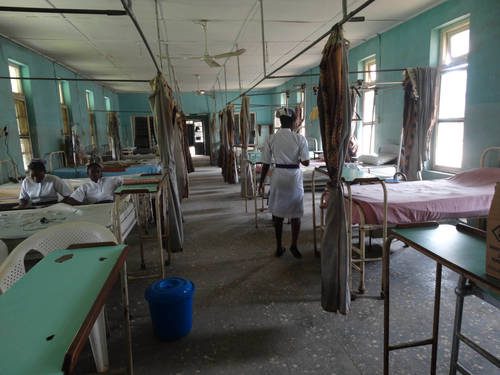Global Issues
Child And Maternal Mortality -By Aliyu Adamu Yusuf
To improve maternal health, barriers that limit access to quality maternal health services must be identified and addressed at both health system and societal levels.

Maternal mortality and morbidity remain public health concern, particularly in developing countries with high maternal mortality rates.
Nigeria is second highest contributor to maternal mortality globally. What is most common causes of these maternal deaths in Nigeria?
In my perception there’s some factors that prevent women for receiving or seeking cure during pregnancy childbirth are :
– Health system failures that translate to (I) poor quality of cure, including disrespect, mistreatment and abuse, (ii) insufficient numbers of and inadequate trained health workers, (iii) shortage of essential medical supplies ;and (iv) poor accountability of health system ;
-Social determinant, including income, access to education, race and ethnicity that put some sub-population at a great risk ;
– Harmful gender norms and /or inequalities that result in a low prioritization of the right of women and girls, including their right to safe, quality and affordable sexual and representative health services ;and
-External factors contributing in instability and health system fragility, such as climate and humanitarian crises.
To improve maternal health, barriers that limit access to quality maternal health services must be identified and addressed at both health system and societal levels.
The painful part of it being all the causes of maternal mortality are preventable… All thanks to BHCPF for working towards reducing this rates in Nigeria by engaging midwifes as their roles is very necessary in ensuring women don’t loose their lives during childbirth.
I appreciate the efforts made thus for to ensure that no women dies while given live, but more need to done because women particularly in the communities, have continued to lose their lives while giving birth in Nigeria. This is a call to action for Nigerian government at all level to use policies to improve maternal and child care in their respective states.
Recently according would health organization (WHO). Nigeria is in the forth (4) position rates globally, A women in Nigeria has 1 in 22 lifetime risk of dying during pregnancy and childbirth , or postpartum /post abortion. In most high-income countries, The lifetime risk is 1 in 4,900.the most recent numbers place the country at 917 deaths for every 100,000 live birth, with many women not getting the care they need in time either due to the delay seeking it out or in getting referred to the right specialist.
HOW CAN WOMEN’S LIVES BE SAVED?
To avoid maternal deaths, it is important to prevent unintended pregnancies. All women including adolescents need access to contraception, and safe abortion services to the full extent of the law, quality post abortion care.
Most maternal deaths are preventable, as the health care solution to prevent or complications are well known. All women need high quality care in pregnancy and during and after childbirth. Maternal health and newborns health are closely linked. It is particularly important that all birth attended by skilled health professional, as timely management and treatment can make the difference between life and deaths for the women as well as for the newborn.
Aliyu Adamu Yusuf is in development of mass communication, Abubakar tatari Ali polytechnic bauchi.










